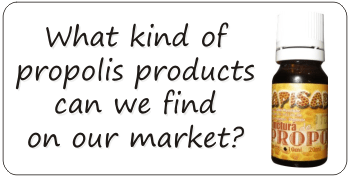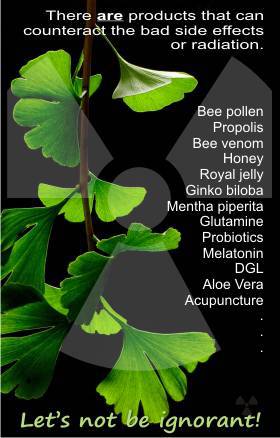In 2015 the World Health Organization said two-thirds of the world population have oral herpes. Every person has at least once asked himself what is the best treatment for herpes. Not because it is dangerous, but because it hurts and is unaesthetic.
We know that cold sores (that’s how herpes manifests itself) have nothing to do with a cold. Though they may appear exactly when we catch a cold, like the cherry on top of a cake, the cold is not what causes it.
Cold sores mark an outburst of infection with Herpes Simplex Virus (HSV-1) which gives us the disease called Herpes labialis. (You may have also heard of HSV-2 but this causes genital herpes.)
Also called fever blisters, they can show up anywhere on your body: outside of your mouth and lips, nose, cheeks, or fingers. I have seen pictures online that completely turned my stomach upside down. So gross, so hideous and surely very painful. But of course these are cases when herpes is associated with other diseases or/and on an immunodeficient system.
Generally the episodes of herpes labialis are self-limiting conditions and would normally heal within 10 to 14 days, if left untreated. But today people don’t let them heal by themselves (due to bad symptoms) and immediately apply something on it. Like Acyclovir.
Acyclovir is an antiviral medication, which goes to the root of the problem and tries to kill the virus that makes the sore. It is recommended for several viruses: herpes simplex (the one that causes cold sores around the mouth), herpes zoster (causes shingles), and varicella zoster virus (which gives chickenpox).
However, it is not a cure for these infections. The viruses continue to live in the body. This antiviral medicine only decreases the severity and length of the outbreaks.
It helps the sores heal faster, keeps new sores from forming, and decreases pain/itching. This medication may also help reduce how long pain remains after the sores heal. In addition, in people with a weakened immune system, acyclovir can decrease the risk of the virus spreading to other parts of the body and causing serious infections.
The downside of this drug is that it works best ONLY when started at the first sign of an outbreak. It may not work as well if you delay treatment. And that’s not such a good thing, as you may be in an area where you cannot find a pharmacy.
Does acyclovir has any side-effects?
This question should never be put in the first place! It’s a synthetic drug, of course there are side-effects, but of course not to many people and if taken internally. Nausea, diarrhea, headache, or vomiting may occur.
Webmd warns us: “Tell your doctor right away if any of these unlikely but serious side effects occur: dizziness, drowsiness, signs of kidney problems (such as a change in the amount of urine, unusual back/side pain), mental/mood changes (such as agitation, confusion, hallucinations), shaky/unsteady movement, trouble speaking.
Not very encourages directions. Yet we NEED to take it, we cannot possibly live with those ugly, itching, painful blisters on our lips!
Are there alternative remedies for cold sores?
Yes, there are. There are natural antivirals, starting from colloidal silver to numerous essential oils, which we can find today integrated in easy-to-apply lipsticks, creams or lip balms.
Propolis is also an excellent antiviral (amazing for all forms of flue and colds – also caused by viruses).
My husband is a bearer of the virus and I have always treated his outbursts with propolis tincture (alcohol based). If I apply it from the first signs, he only needs 2 drops applied 3 times per day and that’s it.
And recently a new study proved this for all non-believers. 🙂
Research confirms the efficacy of propolis
• In October 2017 the study “Comparative Study with a Lip Balm Containing 0.5% Propolis Special Extract GH 2002 versus 5% Aciclovir Cream in Patients with Herpes Labialis in the Papular/Erythematous Stage: A Single-blind, Randomized, Two-arm Study.” conducted by Arenberger P et al. from Czech Republic and Germany, studied the effects of propolis compared to acyclovir.
It was a controlled single-blind trial with patients in the erythematous/papular stage.
189 patients were treated with propolis cream and 190 patients were treated with acyclovir cream. Application was done 5 times daily (every 3-5 hours) to the entire upper and lower lip, corresponding to a daily dose of approximately 1 g cream.
The team of researchers analyzed as the primary parameter the difference in median time to complete encrustation or epithelialization of lesions. Secondary parameters were the development of typical herpes symptoms (eg, pain, burning and itching, tension, and swelling), the global assessment of efficacy, and the safety of application.
Results:
The predefined clinical situation was reached after a median of 4 days with propolis and after 5 days with acyclovir (P < 0.0001). In addition, a higher proportion of patients in the propolis group skipped the vesicular and the erosive stage. Significant differences in favor of the study preparation were found with all secondary parameters and symptoms. No allergic reactions, local irritations, or other adverse events were observed.
Conclusion: A formulation of 0.5% propolis GH 2002 extract lip balm was found to be superior in the treatment of episodes of herpes labialis over 5% acyclovir cream in patients in the papular/erythematous phase upon inclusion.

• Another study Efficacy and tolerability of propolis special extract gh 2002 as a lip balm against herpes labialis: a randomized, double-blind three-arm dose finding study, by Simona Holcová and Marie Hladiková, published in 2011, analyzed the effects of propolis lip balm over cold sores, in different concentrations.
The trial was designed as a double-blind, randomized dermatological study in 150 outpatients with Herpes labialis which were administered three different concentrations of propolis special extract GH 2002 in a lip balm (0.1%, 0.5% and 1%).
The best results were obtain with a 0.5% concentration, with shortest healing time (3.4 and 5.4 days in the 50th and 90th percentile, respectively; p = 0.008 vs. 1% and 0.09 vs. 0.1%) and good tolerability. Yet results were obtained with all 3 of them, achieving highly significant therapeutic results in comparison with baseline values (p < 0.0005) for all secondary parameters as early as day 2/3.
What is GH 2002?
GH 2002 is a semiliquid ethanol propolis extract produced by Gehrlicher Pharmazeutische Extrakte, Eurasburg, Germany. It is purified from potentially allergenic pollen, waxes, and resins, and is standardized to a defined content of flavonoids, polyphenols, and phenylcarboxylic acids.
Composition of the lip propolis balm used in the above mentioned study:
– drug extract ratio 2:1
– extraction solvent ethanol
– excipients: water, xylitol, Butyrospermum parkii, hydrogenated polyisobutene, Simmondsia chinensis seed oil, Prunus amygdalis dulcis (sweet almond) oil, panthenol, polyglyceryl-4-isostearate, cetyl PEG/PPG-10/1, dimethicone, hexyl laurate, sodium chloride, tocopheryl acetate, and bisabolol.
• The study “Antiviral Activity and Mode of Action of Propolis Extracts and Selected Compounds” conducted by Schnitzler P et al. from Germany, analyzed aqueous and ethanol extracts of propolis, phytochemically and for their antiviral activity in vitro. They found that both propolis extracts have high antiherpetic effects.
The antiviral effect of propolis extracts and selected constituents, e.g. caffeic acid, p-coumaric acid, benzoic acid , galangin, pinocembrin and chrysin against herpes simplex virus type 1 (HSV-1) was analysed. (See composition of propolis.)
Both propolis extracts exhibited high levels of antiviral activity against HSV-1 in viral suspension tests, plaque formation was significantly reduced by more than 98%.
Their conclusion: Propolis extracts might be suitable for topical application against herpes infection.
Propolis works for genital herpes, too.
HSV-2, herpes simplex virus type 2, is a chronic, persistent infection from the category of sexually transmitted diseases. Acyclovir and derivatives are again the only synthetic medication given.
• Mechanism of herpes simplex virus type 2 suppression by propolis extracts analyzed the effects of aqueous and ethanolic extracts of propolis in dealing with genital herpes.
Aqueous extract and ethanol (alcohol) extract, though both coming from propolis, do not have the same composition. The aqueous propolis extract has a relatively high amount of phenylcarboxylic acids but low concentrations of flavonoids when compared to the ethanolic special extract GH 2002. Yet, both propolis extracts exhibited high levels of antiviral activity against HSV-2 in viral suspension tests. The results also showed that infectivity was significantly reduced by more than 99%.
The conclusion of the study was that both propolis extracts might be suitable for topical therapy in recurrent herpetic infection.
Propolis also works for Herpes Zoster
• Clinical Study: Lotion Containing Propolis Special Extract GH 2002 0.5% vs. Placebo as On-Top Treatment of Herpes Zoster”, conducted by Denisa Tomanova, Simona Holcova and M. Hladíková from Czech Republic., published in September 2017.
60 patients with diagnosed Herpes zoster were either treated with a propolis cream or placebo for 28 days, as an add-on therapy to oral antiviral treatment with aciclovir. The results showed that improvement of pain was significantly better and quicker in the propolis lotion group (p < 0.001 at all visits). Healing of lesions was significantly quicker with the propolis-containing lotion.

“The observations clinically confirm antiviral and anti-inflammatory effects of propolis special extract GH 2002 and at the same time demonstrate the benefits of the topical add-on to the systemic antiviral therapy of Herpes zoster.”
Where can we find Propolis balm?
Unfortunately propolis balm containing GH 2002 is not yet on the market. I could only find propolis capsules made with it. EUROPHARMA Propolis Extract, 60 Capsules.
But lip balms made with propolis are nothing new. The good effects of propolis were well known long before these studies and we can find lots of them on the market. Here are few examples found on Amazon.
But as I said, simple propolis tincture/extract works, too. I personally apply 2 drops of alcoholic tincture on the lip, 3 times per day. It is usually gone in 2 days. Be careful with this tincture, it stains.
How to recognize cold sores
If you’ve ever had a cold sore, you know the signs. If you haven’t then you should know that it starts with a tingling and then the edge of your lip or the corner of your mouth begins to burn. Then the outbreak: An ugly red sore. A few days later it breaks open and crusts over.
Herpes simplex is spread by close contact. If you kiss someone with a cold sore, or you touch his face and then touch your own face, you can catch the virus. You can also get herpes simplex by sharing lip balm, a fork, a mug or a razor with someone who has it. You’re most likely to get the virus from someone who has an active cold sore, but it’s also possible to contract it from someone who has the condition lying dormant in his body.
Don’t touch the sores. If you pick your cold sore, you may spread the virus to another part of your body. That will just make your outbreak worse. Keep your hands away from your mouth, and wash your hands often, especially when you touch your face.
Aloe vera gel. The same gel used for sunburn may help a cold sore to heal. Research has shown that it can help fight viruses, including herpes simplex. The Academy of General Dentistry suggests you apply aloe vera gel to cold sores three times a day to help it heal. Amazon sells an absolutely incredible product: Nature Republic New Soothing & Moisture Aloe Vera 92% Gel, 10.56 Fl Oz
=========
=========
Other references:
https://www.webmd.com/drugs/2/drug-941/acyclovir-oral/details;
https://www.webmd.com/skin-problems-and-treatments/cold-sores-at-home-care#1
Featured picture source Pixabay.com under CC






